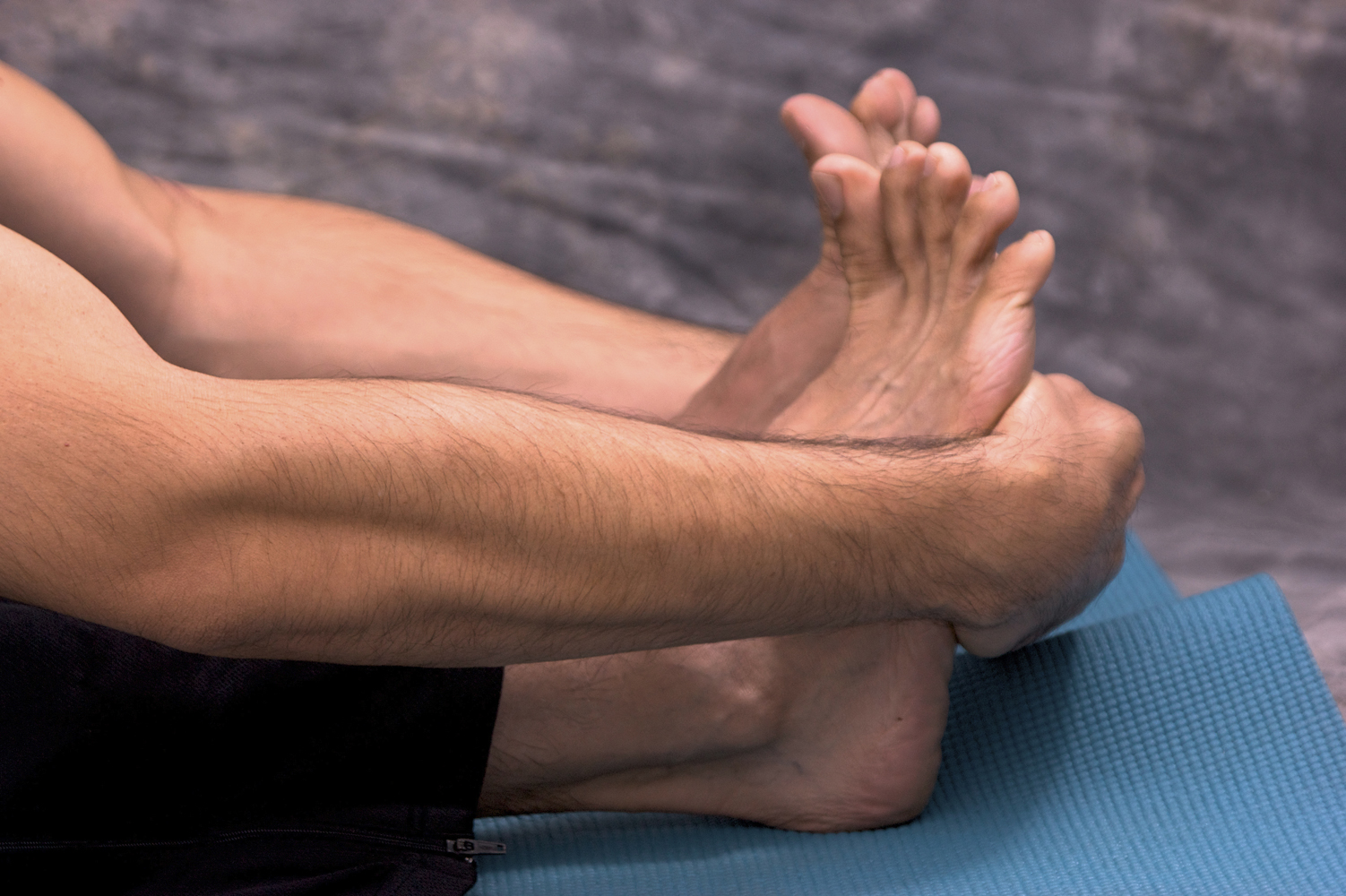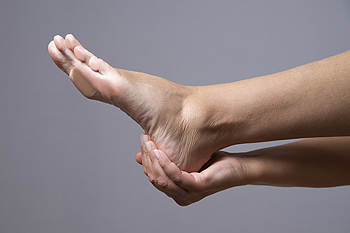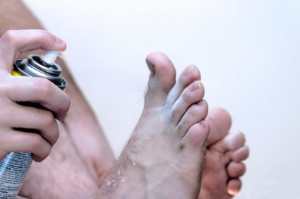





 There are many different signs that you may have an ingrown toenail. If you have an ingrown toenail, you may notice pain when you apply pressure to the area. Other symptoms include skin inflammation, fluid build-up, bleeding, or pus in the affected area. Thankfully, there are ways you can prevent ingrown toenails from developing in the future. It is advised to keep your feet clean by washing them with soap and water. In addition, you try changing your socks on a regular basis. Another tip is to cut your toenails straight across to stop them from digging into the skin that surrounds them. Lastly, you should try wearing shoes that fit properly. In severe cases, surgery may be performed to treat an ingrown toenail. These surgeries are known as partial nail avulsion and total nail avulsion. In partial nail avulsion, part of the toenail is removed; in total nail avulsion, the whole toenail is removed. If you have any questions, concerns, or are experiencing any symptoms regarding ingrown toenails, a consultation with a podiatrist is advised.
There are many different signs that you may have an ingrown toenail. If you have an ingrown toenail, you may notice pain when you apply pressure to the area. Other symptoms include skin inflammation, fluid build-up, bleeding, or pus in the affected area. Thankfully, there are ways you can prevent ingrown toenails from developing in the future. It is advised to keep your feet clean by washing them with soap and water. In addition, you try changing your socks on a regular basis. Another tip is to cut your toenails straight across to stop them from digging into the skin that surrounds them. Lastly, you should try wearing shoes that fit properly. In severe cases, surgery may be performed to treat an ingrown toenail. These surgeries are known as partial nail avulsion and total nail avulsion. In partial nail avulsion, part of the toenail is removed; in total nail avulsion, the whole toenail is removed. If you have any questions, concerns, or are experiencing any symptoms regarding ingrown toenails, a consultation with a podiatrist is advised.
Ingrown toenails may initially present themselves as a minor discomfort, but they may progress into an infection in the skin without proper treatment. For more information about ingrown toenails, contact one of our podiatrists of Active Foot and Ankle Care, LLC. Our doctors can provide the care you need to keep you pain-free and on your feet.
Ingrown Toenails
Ingrown toenails are caused when the corner or side of a toenail grows into the soft flesh surrounding it. They often result in redness, swelling, pain, and in some cases, infection. This condition typically affects the big toe and may recur if it is not treated properly.
Causes
You are more likely to develop an ingrown toenail if you are obese, have diabetes, arthritis, or have any fungal infection in your nails. Additionally, people who have foot or toe deformities are at a higher risk of developing an ingrown toenail.
Symptoms
Some symptoms of ingrown toenails are redness, swelling, and pain. In rare cases, there may be a yellowish drainage coming from the nail.
Treatment
Ignoring an ingrown toenail can have serious complications. Infections of the nail border can progress to a deeper soft-tissue infection, which can then turn into a bone infection. You should always speak with your podiatrist if you suspect you have an ingrown toenail, especially if you have diabetes or poor circulation.
If you have any questions, please feel free to contact our offices located in Fair Lawn, Riverdale, and Englewood, NJ . We offer the newest diagnostic and treatment technologies for all your foot care needs.
 When proper foot stretches are performed, the body may become stronger, and may possibly alleviate certain aches and pains that may be present. An effective stretch that may strengthen the plantar fascia would be to interlace your fingers between your toes, and gently pull while rolling your ankle in small circles. Additionally, a stretch that simulates a massage involves using a tennis ball. When the foot is placed on top of the ball and gently rolled, the ligaments and tendons are stretched, encouraging the muscles of the foot to loosen. A popular foot stretch is known as flexing the foot. While sitting down, hold your foot in your hands and gently pull into an arch. The benefits of this effective stretch include improved strength in the toes in addition to possibly preventing any foot spasms from occurring. Please consult a podiatrist for additional information about the positive effects of proper foot stretching.
When proper foot stretches are performed, the body may become stronger, and may possibly alleviate certain aches and pains that may be present. An effective stretch that may strengthen the plantar fascia would be to interlace your fingers between your toes, and gently pull while rolling your ankle in small circles. Additionally, a stretch that simulates a massage involves using a tennis ball. When the foot is placed on top of the ball and gently rolled, the ligaments and tendons are stretched, encouraging the muscles of the foot to loosen. A popular foot stretch is known as flexing the foot. While sitting down, hold your foot in your hands and gently pull into an arch. The benefits of this effective stretch include improved strength in the toes in addition to possibly preventing any foot spasms from occurring. Please consult a podiatrist for additional information about the positive effects of proper foot stretching.
Stretching the feet is a great way to prevent injuries. If you have any concerns with your feet consult with one of our podiatrists from Active Foot and Ankle Care, LLC. Our doctors will assess your condition and provide you with quality foot and ankle treatment.
Stretching the Feet
Being the backbone of the body, the feet carry your entire weight and can easily become overexerted, causing cramps and pain. As with any body part, stretching your feet can serve many benefits. From increasing flexibility to even providing some pain relief, be sure to give your feet a stretch from time to time. This is especially important for athletes or anyone performing aerobic exercises, but anyone experiencing foot pain or is on their feet constantly should also engage in this practice.
Great ways to stretch your feet:
Individuals who tend to their feet by regular stretching every day should be able to minimize foot pain and prevent new problems from arising.
If you have any questions, please feel free to contact our offices located in Fair Lawn, Riverdale, and Englewood, NJ . We offer the newest diagnostic and treatment technologies for all your foot care needs.
 There are several causes of heel pain, and one of these conditions may be referred to as plantar fasciitis. If you choose to wear shoes that are not fitting properly, the foot may undergo severe pain because of the damage that may be inflicted on the plantar fascia ligament. This tissue connects the heel to the base of the toes, and if tearing occurs due to overuse, the result is very painful. Many athletes often endure this type of injury, which typically may be caused from running distances without executing proper stretching and training exercises. Additionally, genetics may be a factor in developing this ailment, which may often affect the structure of the foot. The pain that is experienced is usually described as achiness in the arch or center of the heel, with the pain being the worst in the morning after a night of slumber. It’s suggested that performing proper stretching techniques may help prevent this condition from occurring. If you are afflicted with plantar fasciitis, consider scheduling a consultation with a podiatrist to learn about correct treatment methods.
There are several causes of heel pain, and one of these conditions may be referred to as plantar fasciitis. If you choose to wear shoes that are not fitting properly, the foot may undergo severe pain because of the damage that may be inflicted on the plantar fascia ligament. This tissue connects the heel to the base of the toes, and if tearing occurs due to overuse, the result is very painful. Many athletes often endure this type of injury, which typically may be caused from running distances without executing proper stretching and training exercises. Additionally, genetics may be a factor in developing this ailment, which may often affect the structure of the foot. The pain that is experienced is usually described as achiness in the arch or center of the heel, with the pain being the worst in the morning after a night of slumber. It’s suggested that performing proper stretching techniques may help prevent this condition from occurring. If you are afflicted with plantar fasciitis, consider scheduling a consultation with a podiatrist to learn about correct treatment methods.
Plantar fasciitis is a common foot condition that is often caused by a strain injury. If you are experiencing heel pain or symptoms of plantar fasciitis, contact one of our podiatrists from Active Foot and Ankle Care, LLC. Our doctors can provide the care you need to keep you pain-free and on your feet.
What Is Plantar Fasciitis?
Plantar fasciitis is one of the most common causes of heel pain. The plantar fascia is a ligament that connects your heel to the front of your foot. When this ligament becomes inflamed, plantar fasciitis is the result. If you have plantar fasciitis you will have a stabbing pain that usually occurs with your first steps in the morning. As the day progresses and you walk around more, this pain will start to disappear, but it will return after long periods of standing or sitting.
What Causes Plantar Fasciitis?
There are some risk factors that may make you more likely to develop plantar fasciitis compared to others. The condition most commonly affects adults between the ages of 40 and 60. It also tends to affect people who are obese because the extra pounds result in extra stress being placed on the plantar fascia.
Prevention
There are a variety of treatment options available for plantar fasciitis along with the pain that accompanies it. Additionally, physical therapy is a very important component in the treatment process. It is important that you meet with your podiatrist to determine which treatment option is best for you.
If you have any questions, please feel free to contact our offices located in Fair Lawn, Riverdale, and Englewood, NJ . We offer the newest diagnostic and treatment technologies for all your foot care needs.
 If you experience itchy feet and toes, you may have what is referred to as athlete’s foot. This condition is caused by a fungus, and it thrives in moist environments, such as the inside of shoes and socks. Common places for this contagious condition to spread include public pools and showers, and it’s suggested to wear appropriate shoes while in these areas. Affected skin may appear to be dry, red, and cracked, which can lead to severe itching and may potentially cause discharge to ooze from affected areas. Proper treatment can consist of using an anti-fungal powder after thoroughly washing and drying the feet, especially between the toes. Consult with a podiatrist for additional information about athlete’s foot.
If you experience itchy feet and toes, you may have what is referred to as athlete’s foot. This condition is caused by a fungus, and it thrives in moist environments, such as the inside of shoes and socks. Common places for this contagious condition to spread include public pools and showers, and it’s suggested to wear appropriate shoes while in these areas. Affected skin may appear to be dry, red, and cracked, which can lead to severe itching and may potentially cause discharge to ooze from affected areas. Proper treatment can consist of using an anti-fungal powder after thoroughly washing and drying the feet, especially between the toes. Consult with a podiatrist for additional information about athlete’s foot.
Athlete’s Foot
Athlete’s foot is often an uncomfortable condition to experience. Thankfully, podiatrists specialize in treating athlete’s foot and offer the best treatment options. If you have any questions about athlete’s foot, consult with one of our podiatrists from Active Foot and Ankle Care, LLC. Our doctors will assess your condition and provide you with quality treatment.
What Is Athlete’s Foot?
Tinea pedis, more commonly known as athlete’s foot, is a non-serious and common fungal infection of the foot. Athlete’s foot is contagious and can be contracted by touching someone who has it or infected surfaces. The most common places contaminated by it are public showers, locker rooms, and swimming pools. Once contracted, it grows on feet that are left inside moist, dark, and warm shoes and socks.
Prevention
The most effective ways to prevent athlete’s foot include:
Symptoms
Athlete’s foot initially occurs as a rash between the toes. However, if left undiagnosed, it can spread to the sides and bottom of the feet, toenails, and if touched by hand, the hands themselves. Symptoms include:
Diagnosis and Treatment
Diagnosis is quick and easy. Skin samples will be taken and either viewed under a microscope or sent to a lab for testing. Sometimes, a podiatrist can diagnose it based on simply looking at it. Once confirmed, treatment options include oral and topical antifungal medications.
If you have any questions, please feel free to contact our offices located in Fair Lawn, Riverdale, and Englewood, NJ . We offer the newest diagnostic and treatment technologies for all your foot care needs.






